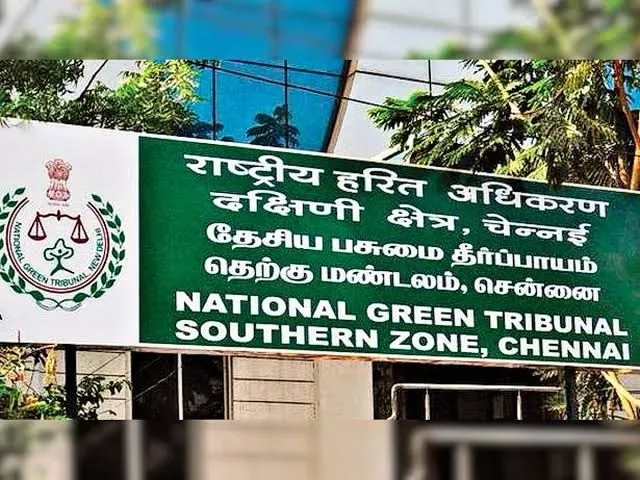What Steps is NGT Taking to Safeguard the Environment During Ganesh Festival?

Synopsis
Key Takeaways
- NGT's directive aims to protect the environment during Ganesh Chaturthi.
- Public awareness campaign to be launched by TNPCB.
- Focus on penalties for environmental violations.
- Promotion of eco-friendly practices, including clay idols.
- Importance of balancing cultural celebrations with environmental responsibility.
Chennai, June 18 (NationPress) In a crucial initiative aimed at safeguarding the environment during Ganesh Chaturthi celebrations, the Southern Bench of the National Green Tribunal (NGT) has mandated the Tamil Nadu Pollution Control Board (TNPCB) to disseminate comprehensive information regarding penalties for infringements of environmental regulations and to launch a statewide awareness campaign.
The bench, which includes Justice Pushpa Sathyanarayana and expert member K. Satyagopal, directed the TNPCB to initiate the campaign within a week and ensure that “dos and don’ts” along with applicable fines are widely communicated by June 30.
This directive arises from increasing worries about the environmental repercussions of idol immersions using non-biodegradable materials. The tribunal is particularly concerned about the prevalent use of Plaster of Paris (PoP) and chemically treated paints in idols, despite a prohibition issued by the Central Pollution Control Board (CPCB) in 2010 and reinforced with stricter guidelines in 2020.
However, the implementation of these regulations has been inconsistent, especially in coastal cities like Chennai. The TNPCB reported that it had acted against several unauthorized PoP idol manufacturing units, some of which were sealed. Nevertheless, violations persist, particularly in urban areas.
After last year’s Ganesh Chaturthi, cleanup operations in Chennai alone retrieved approximately 150 metric tonnes of idol fragments and festival-related waste from beaches such as Pattinapakkam, Kasimedu, and Palavakkam.
While recognizing the importance of respecting religious traditions, the NGT clarified that such celebrations should not lead to environmental harm.
“We are not limiting the celebration of the festival; we are addressing the pollution it generates,” the bench noted, emphasizing the need for sustainable celebration practices.
The tribunal also criticized the TNPCB for its hesitance to implement the “polluter-pays” principle— a framework it had suggested in early 2024 to hold polluters financially responsible for post-festival cleanup.
Due to legal and religious concerns, the TNPCB has so far refrained from enforcing this fee. However, the NGT reiterated that such a system is crucial to ensure that the financial burden does not fall on taxpayers.
As part of its directive, the NGT encouraged the adoption of eco-friendly practices, including clay idols, natural dyes, and designated immersion zones. With the festival approaching, the tribunal’s ruling is anticipated to influence public behavior and administrative strategies throughout Tamil Nadu.







